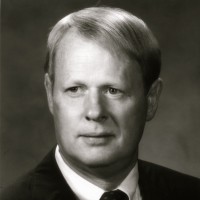Students and faculty members tend to take the staff of a university pretty much for granted. While they understand these are the people who keep the trains running on time, who provide them with the environment they need for teaching and research, most view staff as only the supporting cast for the real stars, the faculty. When staff come to mind at all, it is usually as a source of complaints. To many faculty members, service units such as the Plant Department, Purchasing, and Internal Audit are sometimes viewed as the enemy.
Yet, with each step up the ladder of academic administration, my wife and I came to appreciate more just how critical the staff was to both the functioning and the continuity of the university. Throughout the university, whether at the level of secretaries, custodians, groundskeepers or the rarified heights of senior administrators for finance, hospital operations, or facilities construction and management, it became clear to us that the quality of the university’s staff, coupled with their commitment and dedication, was actually just as important as the faculty in making Michigan the remarkable institution it has become. In some ways, even more so, since unlike many faculty members, who view their first responsibilities as to their discipline or perhaps their careers, most staff members are true professionals, deeply committed to the welfare of the university as their highest priority, many dedicating their entire careers to the institution. Most staff members serve the university far longer than the faculty, who tend to be lured away by the marketplace. This was impressed upon me twice each year, when the president would host a banquet to honor staff with long-term service–20, 30, even 40 years. In a very real sense, it is frequently the staff that provide through years of service the continuity of both the culture of the university and its commitment to excellence. Put another way, it is the staff, as much as the students, faculty, or alumni, who perpetuate the institutional saga of the university.
Beyond their skill, competence, and dedication to the university, there was also a remarkable spirit of teamwork among staff members. We found ourselves working with them not so much as supervisors but rather as colleagues, and in time we began to view our presidential roles as more akin to those of staff than faculty, in the sense that our first obligation was always to the welfare of the university rather than to our academic discipline or professional career.
While intensely loyal to the university, staff also require pastoral care from the president, particularly during difficult times such as budget cuts–sometimes involving layoffs–or campus unrest. Anne and I always gave the highest priority to events that demonstrated the importance of staff to the university and our strong support for their efforts. Whenever launching a major strategic effort, such as the Michigan Mandate or the Michigan Agenda for women, I would meet with numerous staff groups throughout the university to explain the effort and seek their advice and counsel. We made it a point to attend or host staff receptions, for example, to honor a retiring staff member or celebrate an important achievement. And, while we understood the central role of faculty in determining the quality of academic programs, we felt it was important that the president always be seen, in word and in deed, as committed to the welfare of the entire university community–students, faculty, and staff–in a balanced sense.
 James J. Duderstadt
President Emeritus and University Professor of Science and Engineering
University Administration
James J. Duderstadt
President Emeritus and University Professor of Science and Engineering
University Administration
 James J. Duderstadt
President Emeritus and University Professor of Science and Engineering
University Administration
James J. Duderstadt
President Emeritus and University Professor of Science and Engineering
University Administration